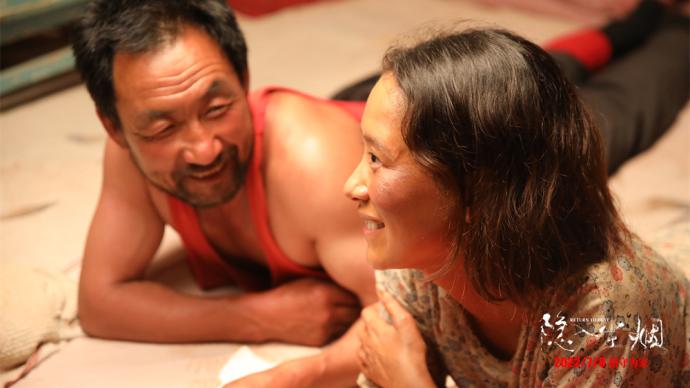
"Watching "Hidden in the Dust", everyone can't see the loss, can't be fooled, and accidentally learned several skills for free, such as hatching chickens, building a house with bare hands, and the whole process of planting crops. If you want to plan to return to a simple life, This movie is equivalent to a labor manual." Director Li Ruijun teased his latest film "Hidden in the Dust".
This is of course a joke. This story rooted in the rural land of the Hexi Corridor records the cultivation and construction throughout the year, and records the lives of two humble ordinary people who meet each other and illuminate each other. The deep affection in the land and time seems to reduce the complex and simplify it into a distant and practical "alive" truth. The happiness that came quietly and dissipated in the smoke, cold and warm moisturizing things silently.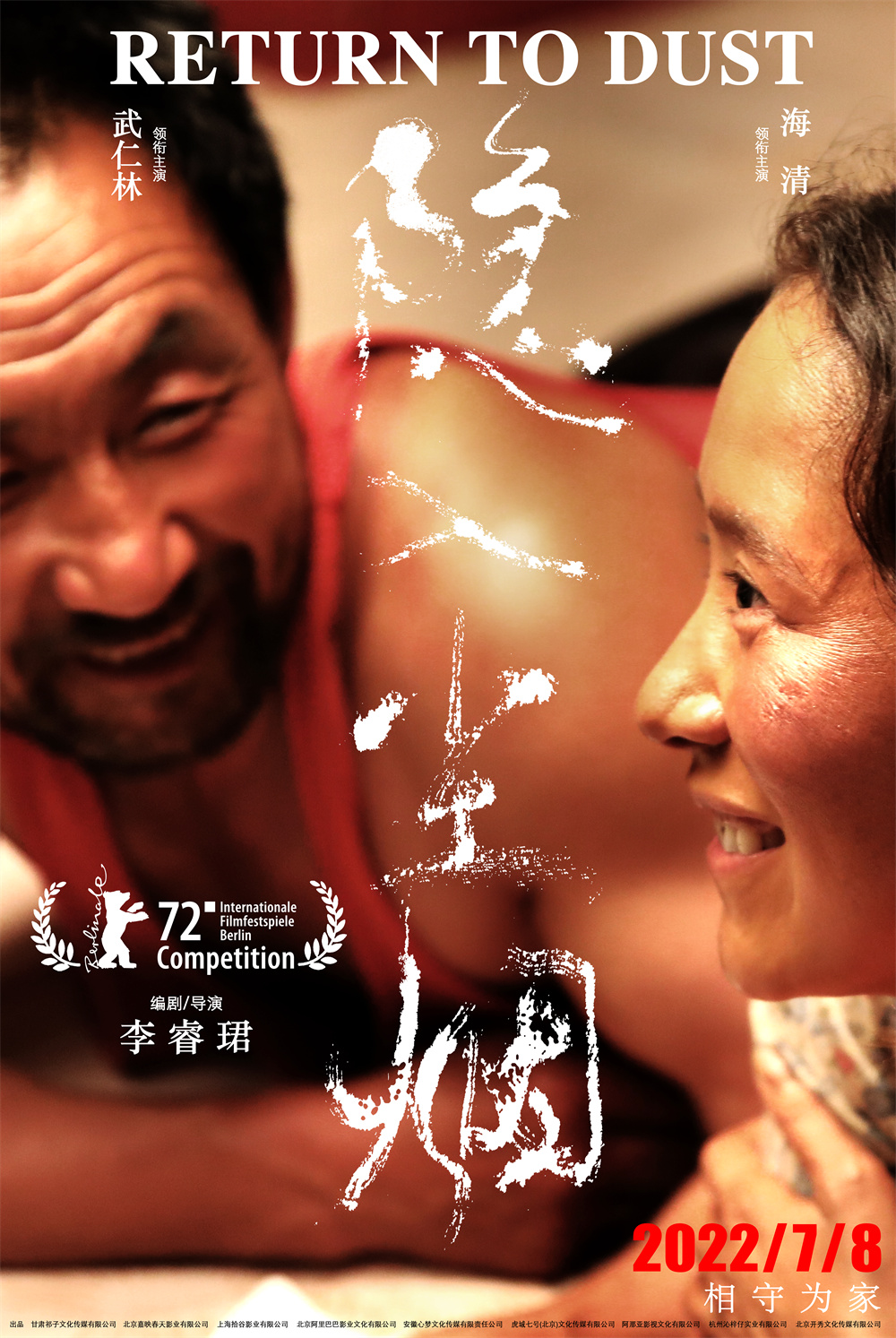
Director Li Ruijun has always paid attention to his hometown, from the "Land Trilogy" of "Old Donkey's Head", "Tell Them I'm Riding a White Crane" and "Home in a Place with Lush Water and Grass". The camera is always staring at the familiar hometown. Even if the last film "Walking Through the Future" turned across the mountains and rivers into the bustling big city, it still tells the dilemma faced by the second generation of migrant workers who have left the land.
He is good at telling stories that are cruel and absurd without losing warmth, and outlines people's attachment to the land and the contradiction between modern civilization and touching people's hearts. Having talked about the elderly, children and young people, this time he will focus on the middle-aged people who are inseparable from the village.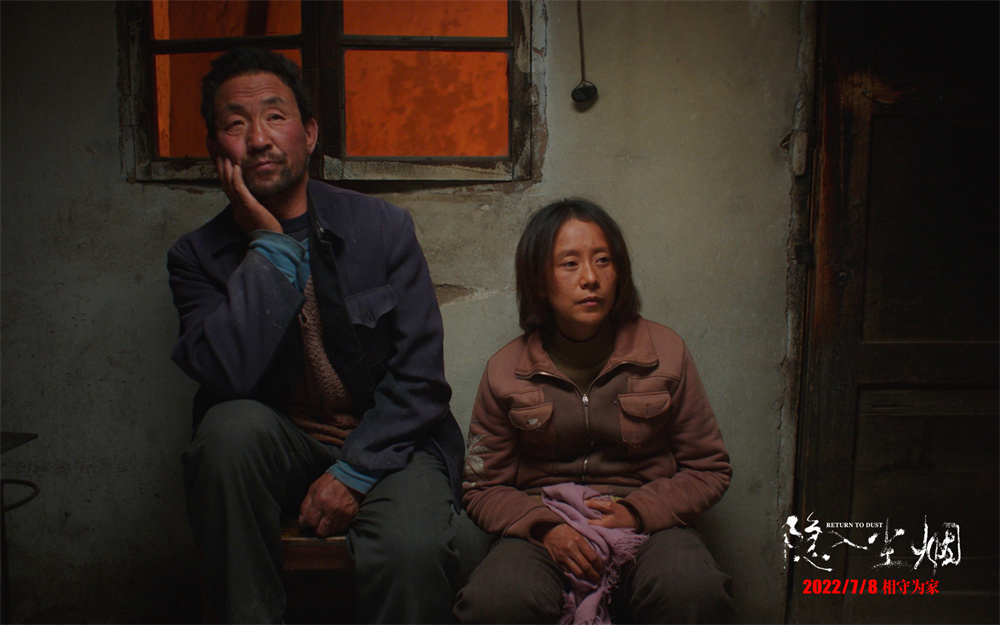
A fascinating thing is that in the filming of this film about rural life, time itself has also become an important role, and the changing of the seasons and the growth of all things are also the laws that the creator follows. During the course of the year, the crew takes care of the livestock and poultry, and shoots the growth of crops according to seasons and specific cycles. In the neglected daily life, the lens conveys poetry beyond the ordinary.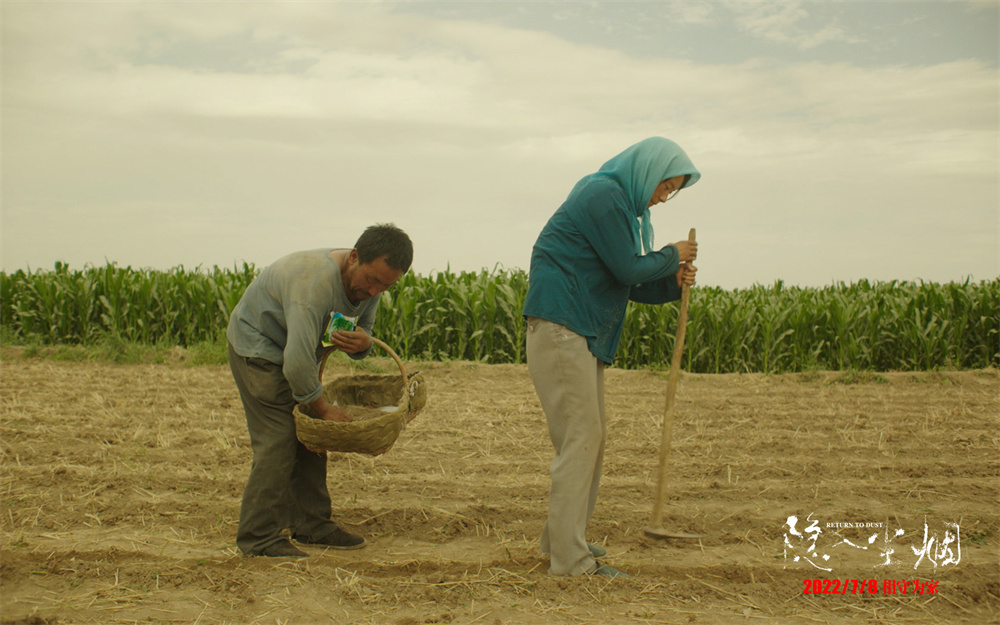
"For more time, we are all waiting, waiting for the arrangement of time and destiny. Just as farmers give their destiny to the land and time, we also give the fate of the movie to the land and time." And such "Delivery" also allows the film itself to achieve a certain synaesthesia with farming life, and the form and theme echo a wonderful chemical reaction.
"Everything may eventually become daily life, hidden in different stages of time, but it also has life-like changes, which start quietly and are imperceptible, and accompany in the daily life of every occasion." Li Ruijun likes "Hidden" The title of "Into the Dust", "It seems to be very specific and not so specific. In this film, the expression of time, life, and land is involved in all of this."
Before the film was released, Li Ruijun accepted an exclusive interview with The Paper, and talked about the story behind "Hidden in the Dust", as well as the countryside and land in his understanding.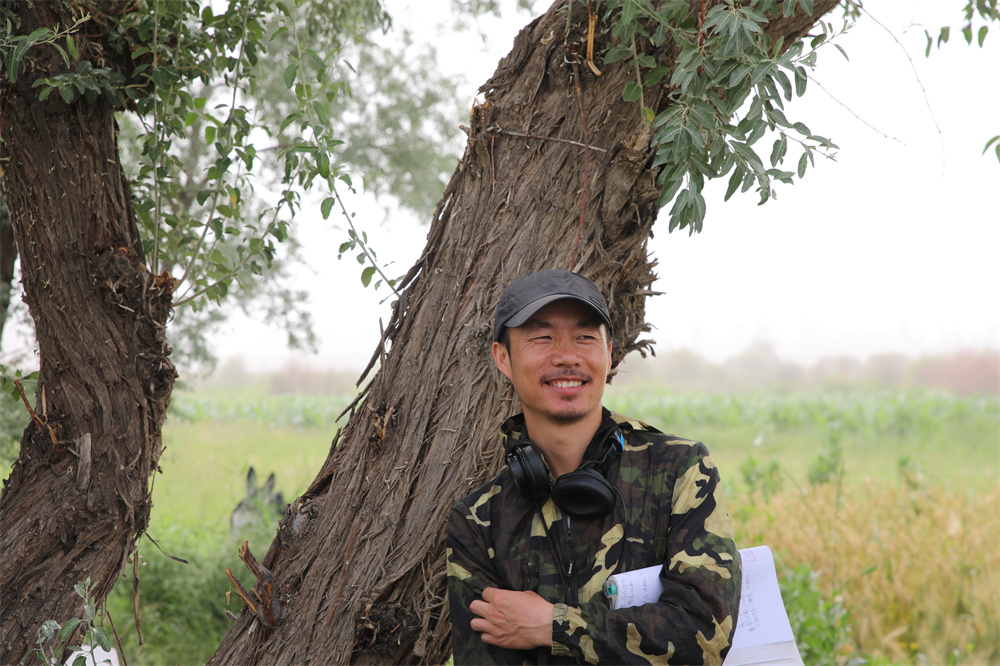
Like a farmer, "growing a movie" in the field
The Paper : The production method of this film is very special. It completely records the four seasons cycle of crops and land. What does this filming method mean? What setbacks did you encounter in the process?
Li Ruijun : Actually, I have had this idea for many years, but I have never made up my mind. First of all, a practical question is, which employer is willing to support you to shoot like this, a movie may cost 2 to 3 movies, you have to keep turning it on and off, and stop it to shoot again; how many actors are willing to take After so much time, I participated in the filming of a movie intermittently throughout the year, including the main creators of other departments.
But for this movie, I think this method is necessary. When we talk about the relationship between people and the land, to deal with the land and life, to witness the beginning of life, to nurture life, to harvest life, such a process and The proposition of film creation itself is consistent. So I want to try my best, and it is still possible to find like-minded partners.
At one point, we thought of a plan to "set-up" another film, which also needed to show the four seasons of the year. The two groups would start at the same time, and the production cost would be saved after filming on one side and the other. But catching up with the epidemic in 2020, one film is already struggling, and it is definitely impossible to open two projects at the same time.
There are good and bad epidemics. The good thing is that because of the epidemic, many crews that were originally going to start have stopped, and some of the main creators can have more time to follow the entire shooting process. The epidemic has given everyone an opportunity to do something with peace of mind. The inconvenient place is, of course, various cumbersome epidemic prevention requirements, including that the size of the crew cannot exceed 50 people. If you are busy, you may be stretched. So in 2020, we shot like this 5 times one after another, and every time we were worried, we were afraid of the recurrence of the epidemic and suddenly the personnel and equipment could not come in. What should I do?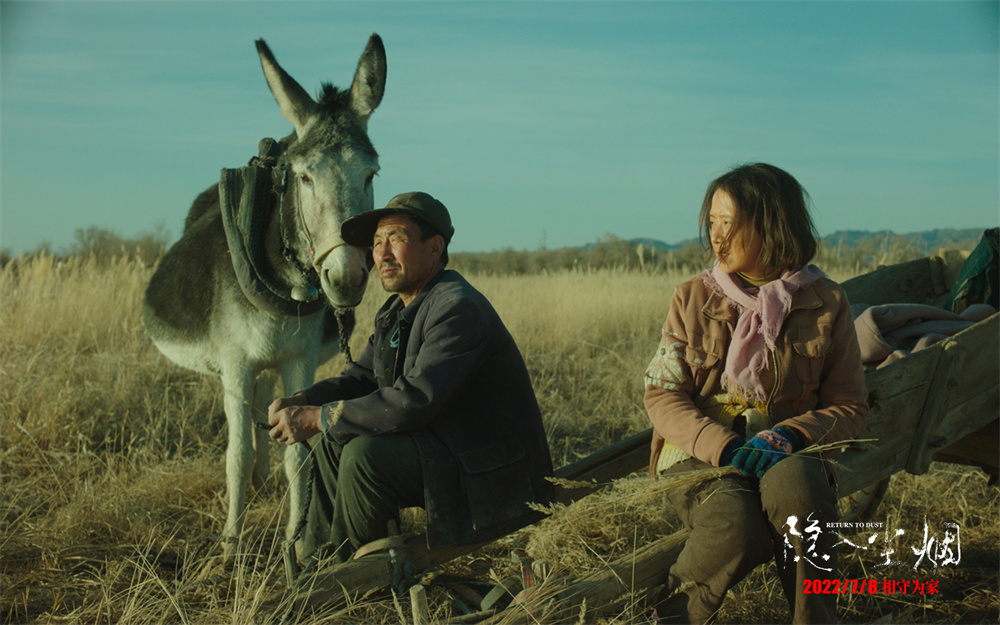
Li Ruijun : Basically that's what it means. Look at a farmer who said with confidence at the beginning of the year that we will continue to plant the grain, but how much can we harvest in autumn? Will there be floods, droughts, pests, winds or hail this year? The fate of a year is given to time and land, and there is a strong sense of unknown, but I have to do it.
Movies are the same. Because of the need to make movies, we have to plant the land for a year, and we become farmers, and have the same empathy for food crops as farmers. The farmers accompany them wholeheartedly, so that crops can grow out of the land, and the process of waiting for the harvest of food is the same as the process of accompanying us wholeheartedly and harvesting our shots from the land.
The Paper : Compared with the filming of the city in the last film "Walking Through the Future", when returning to a familiar village, will the intuition as a director of creation be significantly different?
Li Ruijun : Of course, it is completely different. First of all, the life of urban people is completely different from that of rural people. The difference in the way of life and production leads to a completely different understanding of life and the way they treat people and things.
Farmers deal with crops and livestock because of the four seasons. For example, when I eat an egg, I know how the egg came from. How long does it take to hatch from an egg to a chicken and then to regenerate an egg? Sick, food may suffer, and I will take care of them too. The degree to which rural people cherish and understand this thing is based on his contribution. Many things are not bought with money, but are paid in person. However, people who work in office buildings in the city may only need to buy the eggs from snacks. No matter how much food is wasted, the cognitive value of the life behind the food is different, and the level of respect is different.
When I was a sophomore in high school, our family moved from the village to the county seat. Since I was a child, my life was to help the family farm and herd, cut hog grass for pigs, and feed donkeys and chickens. After many years, when you re-organize and reproduce the life that has happened in your life through the lens, you will find that you have a new understanding of many things. When it is necessary to carefully magnify this thing through the lens, the film is like recreating a memory with thinking. This kind of feeling seems to be hidden in the dust and smoke in the past life. If you pull it apart and let them appear, the camera is placed in the process of development.
The Paper : In addition to the cultivation of the land, there is also a construction process. The performance in the film is also very shocking. How can you consider using a film to show this "construction" process?
Li Ruijun : Our village is in the Hexi Corridor, in many places in the northwest and even in Yunnan, and the houses with civil and wood structures are built in this way. Even the beacon towers of the Han Dynasty that you see in the Hexi Corridor today are all made of earth, mud or such bricks. As far as I can remember, our house has been built in the same way as in the movie. Every family builds a house separated by three forks and five, which also constitutes a part of rural life.
To disassemble this thing with a movie lens, there must be a method. It is not to show the whole process in great detail. It must be in line with the plot, and some corresponding processes are selected to show some cinematic presentation. Including the transformation of some labor tools, it is necessary to do the design by yourself, so that a person who is not physically flexible and does not have so much strength can also deliver heavy mud to people standing on high scaffolding. Turn the process of building into creating characters and lives.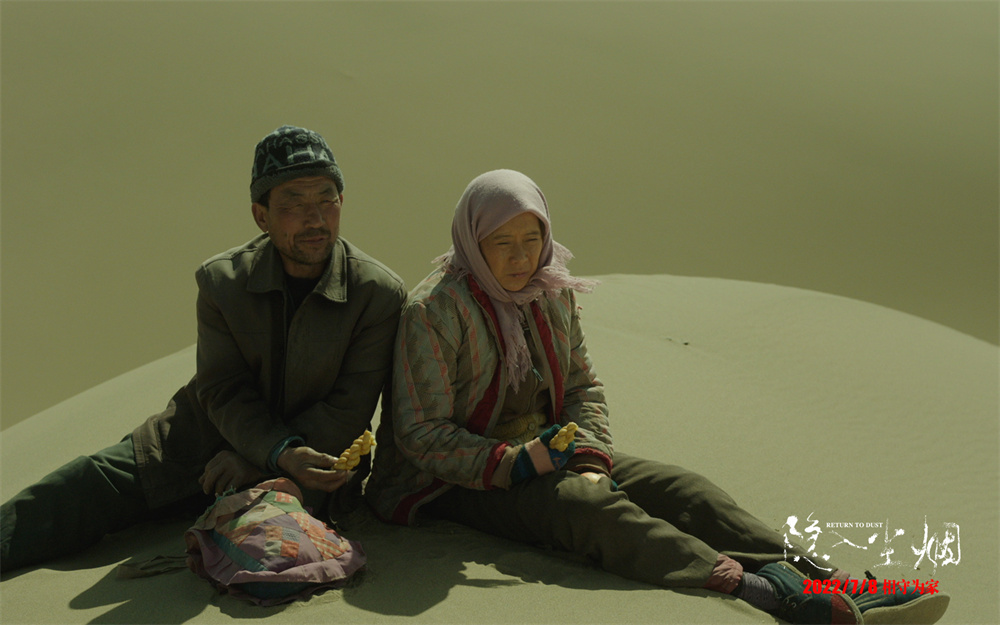
Li Ruijun : Life is cruel enough for these two people, but when they were forced to be together in such an extremely cruel situation, they suddenly found each other illuminating each other. It turned out that the two withered seeds, when they met each other, also gave themselves the soil for germination and awakening. So the film is about the process of two shriveled seeds awakening themselves and growing into denser branches and leaves.
In fact, whether it's writing the script or filming, I don't deliberately want to romanticize it. For me, it's a natural thing. At that time, I was going to shoot two people to express their emotions. We found some situations that really happened in the life of the region. Through such a way of real, in line with their identity, in line with their labor scene and labor environment, it was not abrupt, and at the same time There is no need to avoid love for cruelty. Love is equal to everyone, and we use such methods to convert them into the expression of their unspoken love for each other.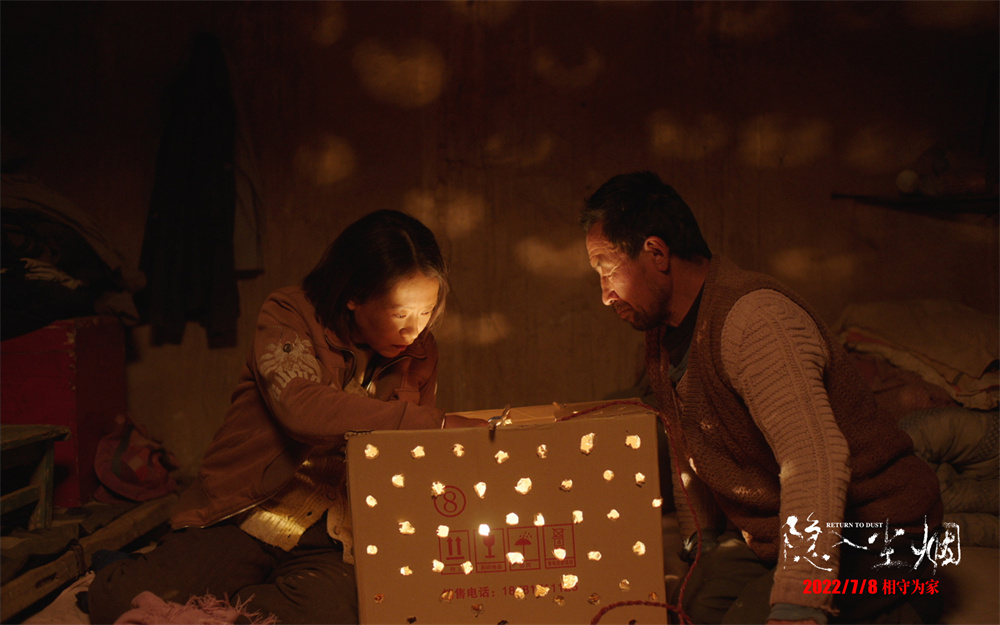
The Paper : In this film, the male lead is a non-professional actor, and the female lead is looking for Hai Qing. How to reconcile the performance?
Li Ruijun : There are two very delicate emotional expressions in this film, which may be a huge challenge for non-professional actors. If we peel off the cocoons, like peeling an onion, layer by layer, this is the most difficult for non-professional actors, but it may be easier for professional actors.
However, it is also a story showing rural life in the northwest. For professional actors, the biggest challenge is language, demeanor, manners and other life details. You have to give the impression that you are indeed the person living in this place. At the beginning, we tried professional actors to see who could give a year to do this. I have known Teacher Haiqing for several years, and she has always wanted to cooperate. After the script is written, I will show her if she is interested. After reading it, she liked the script and the character very much. I asked her, I need 5 shoots, and every time you have to experience life, basically a year is cut into pieces and can't take other longer scenes, she said she can.
She has always wanted to try something different, and I think since an actor is willing to spend so much time doing such a thing, she must be sincere and serious. And in terms of image and age, she fits the role. I'm not a new director either. I've made my sixth feature film. I'll know how to guide actors to perform, how to inspire actors to get into that role. I remember that I also told Mr. Haiqing at the time, as long as you are willing, you give me full trust, as long as you give me time and cooperation, I dare not say that I will turn you 100% into Guiying, at least make you 100% Seventy or eighty is close to the character.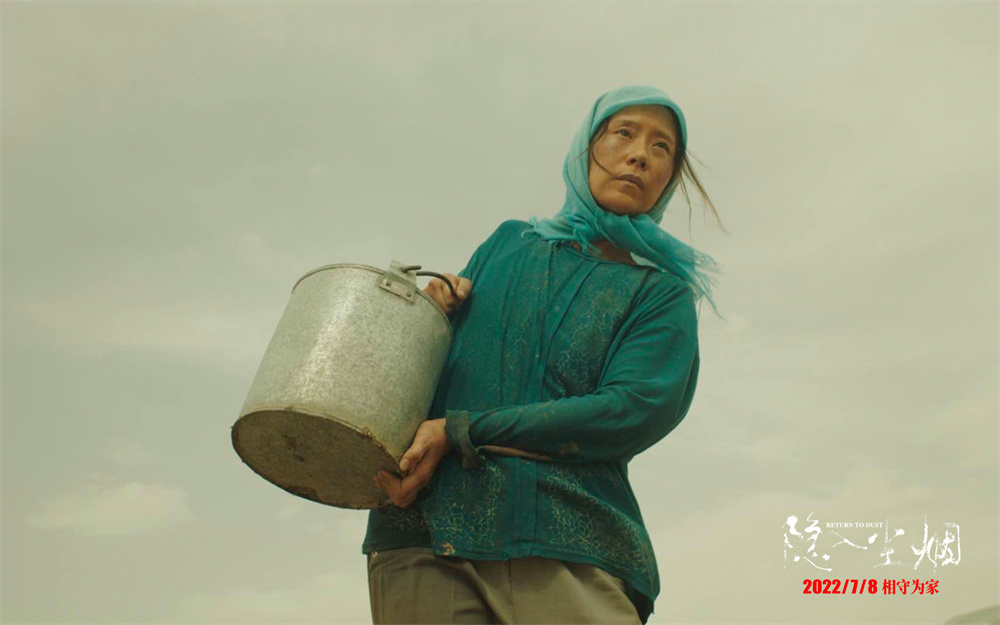
When I asked Teacher Haiqing to play with non-professional actors, she also said no problem. Considering that she and my uncle are also age-appropriate. The advantage of my uncle is that he himself is a farmer living in the village, and he does not need to experience life. For Teacher Haiqing, she is from Nanjing, and she has to overcome the language barrier, because I ask to speak the authentic dialect. The second is physical behavior, movement and demeanor, you need to experience life.
Because professional actors have received systematic performance education, they may subconsciously shape roles, and subconsciously will have such a reaction at the first time. Once you start to shape the characters, it's easy to show signs of performance. And this film is to record a period of life of two people, there is no need to have any traces, return to daily life, return to life itself.
Therefore, Teacher Haiqing's task is to abandon all her original systematic things and return to life, that is, to experience this space and the people in this space personally; her uncle's task is to learn to perform, learn to shape roles, Learn to do the same thing every time—movements, expressions, head turns, and expressions of emotion. The two of them did a reverse, and then, when the two crossed again, they could balance together.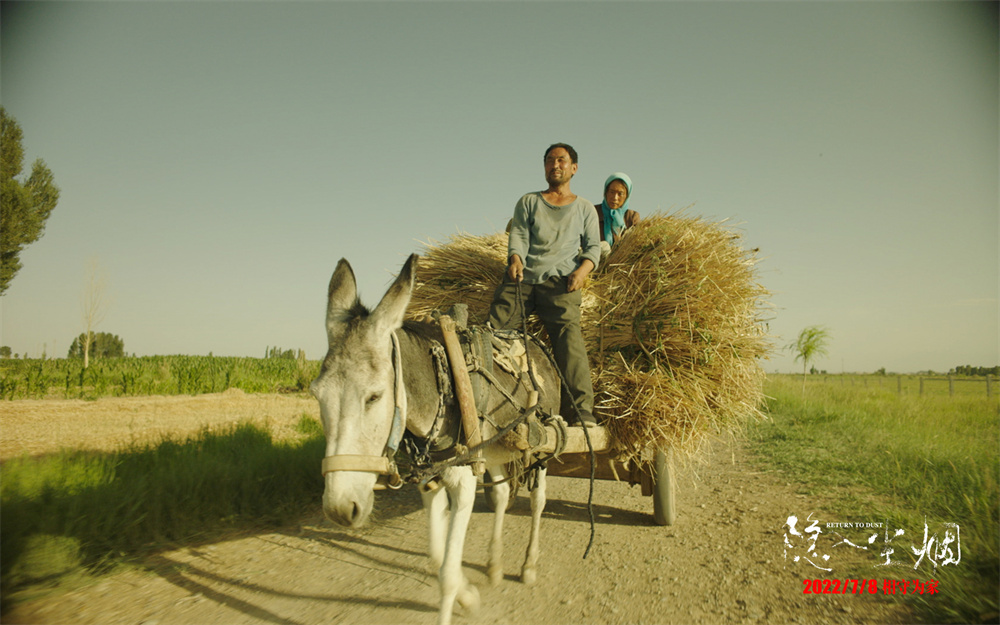
Li Ruijun : At that time, I took Mr. Haiqing to live directly at my uncle's house. The next day, I took her to the county seat to buy clothes similar to Guiying's character. On the one hand, she was wearing old clothes, and on the other hand, it was easier to find the feeling of the character. In addition, it made it easier for the outside world to accept her. In order not to affect her experience of life, we did not tell anyone in the village that this was Haiqing. If anyone asks, they say they are distant relatives of my uncle's house.
Sometimes she would go to the street and ask my aunt to take her to the house of my aunt's female friend, sit on the kang and chat with them, and observe the behavior of rural women close to her age. We also took her to a nursing home in the county seat to observe orphans and widows like Gui Ying and the fourth child with some physical disabilities. Whether in the county or the village, no one recognized her.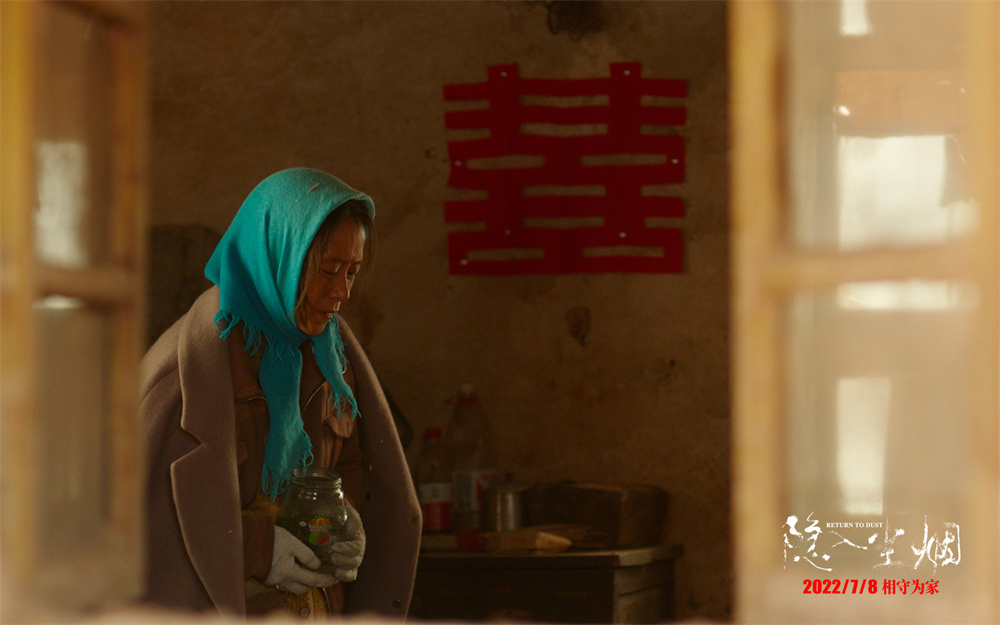
Li Ruijun : It depends on the situation. The film "Hidden in the Dust" needs to show delicate emotions, but it is not an exaggerated and intense plot, and my shooting method is not a pile of fragmented shots and false performances. It is more difficult for actors to shoot a movie with a long shot, because it needs to show some subtle psychological changes. Professional actors have received such training, and it will be much simpler.
"Walking Through the Future" was because it was filming young people leaving the land, living in the city, and speaking Mandarin, which was very suitable for professional actors to perform. Because there are many professional actors who choose to leave their hometowns to realize their dreams, most actors can easily understand the sadness they pay in this experience. But like "Old Donkey's Head", professional actors may not be able to play it. Therefore, professional actors and non-professional actors have their own advantages and disadvantages, and choosing the right actor is the key.
Sensitive to silent people and passing things
The Paper : The protagonists of the story are two marginalized people in the countryside who were abandoned by their families. How could you think of building a story with such two people?
Li Ruijun : There have always been such individuals in the village, and they still exist today. If we broaden its scope a little bit, in every collective, every unit, every organization, or every small team, or even within a crew, there are people who stand out and are easily noticed by everyone. There are also those who stand silently on the sidelines and do things silently. They are easily overlooked by everyone, but they are there. They are also part of our world.
Sometimes, standing in the middle of a group of people, except for those who stand in the forefront, it is easy to turn your attention to the people who are silent or even ignored by everyone. You wonder: what is he thinking? How did he communicate with the world? How did he communicate with the surrounding groups? How did he fit into the world? How does he live? They seem to be in a relatively marginal position in our lives, but like us ordinary people, they all want to have a home.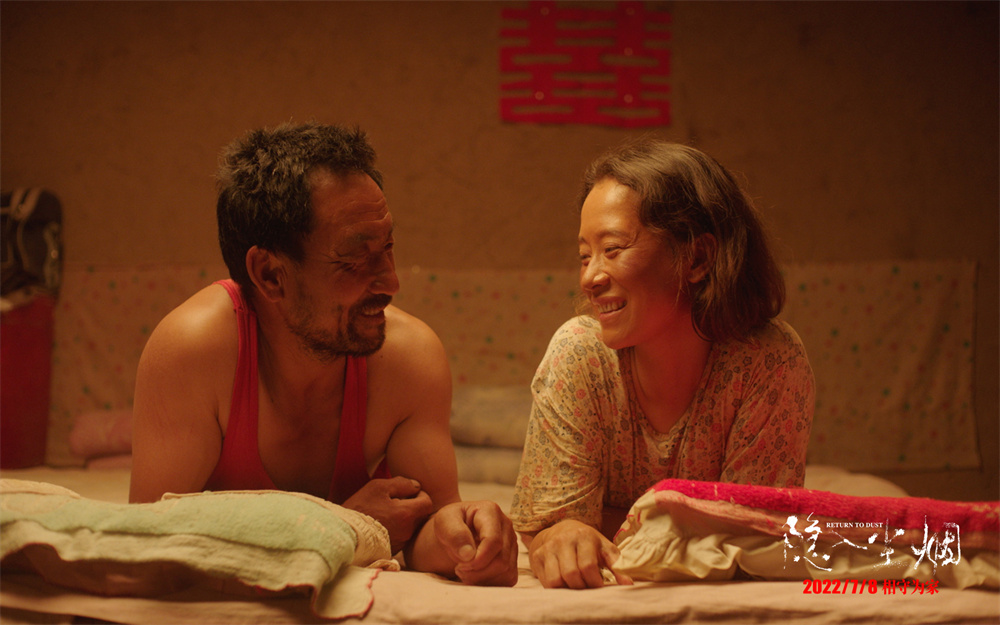
Li Ruijun : There must be a relationship. These films are basically made in this village. Even the story of going to the city like "Passing the Future" is actually about the lives of those who left the village and their next generation. . It seems that you grew up here, and your focus is always there. Naturally, you may have attention and sensitivity to this type of subject matter. For example, the village has been hollowed out, leaving only the elderly, children, and two left-behind middle-aged people like Gui Ying and the fourth child who cannot leave due to various reasons. Groups such as Guiying and the fourth child exist in many places, and they are easily ignored by everyone. But I especially want to know their life, how to connect with the surrounding, how to think, I will pay more attention to these marginalized people.
In 2009, when I filmed "Old Donkey's Head", young people decided to give up their land to work, while older people felt that their lives were inseparable from the land, and the two conflicted. I thought at the time, these young people are now giving up the land, and one day they will be old and unable to stay in the city, will they come back? As a result, more and more people came back in those years, but they had no houses, no land, and even the villagers thought you were from the city, and the situation was very embarrassing. "Hidden in the Dust" is to a certain extent a product of the continuation of the proposition of "Old Donkey's Head", and compared with the previous films, apart from social issues, the things between it and the land have more weight in the whole film. big. If the previous films are presented as a background, this may be a solid and detailed presentation.
The Paper : In the past few years of filming, in addition to telling stories, it seems to have recorded many things that were about to disappear in a "rescue style", such as the folk customs in "Tell them, I went on a white crane", "Home in a place with lush water and grass". The nomadic way in "Place", do you have a sense of responsibility for these gradually fading things?
Li Ruijun : Yes, for example, in the year of the filming, a large number of villages were demolishing old houses. If I go this year, I may not be able to shoot. There are also traditional construction methods like laying walls that are disappearing and are now pouring concrete. Including the nuanced farming methods of small farmers such as Lao Si and Gui Ying, the way of building houses is changing. After people's lifestyles have changed, people's emotional ways, thinking ways, ways of perceiving things, people's attitudes towards life, Philosophical attitudes and life attitudes will all change, so I say it is the arrival of a farming 2.0 era.
I have always lived in the countryside and came to the city after graduating from university. I will often compare and analyze people born and raised in these two environments. There will be great differences in the spiritual outlook, material life and production methods and emotional states. Therefore, it is also a natural tendency. If you want to shoot people's stories, you must be curious about the world, be curious about people, observe people, and record people. You will consciously or unconsciously want to keep these things.
This time, I also joked that when watching "Hidden in the Dust", everyone said that "you can't see the loss, you can't be fooled", and the careful audience accidentally learned several skills for free, such as hatching chickens, building a house with bare hands, and planting crops. of the whole process. If you're planning to return to a simple life, this movie is the equivalent of a labor manual. We should apply for this kind of agricultural skills training across the country, such as science popularization films of the Science Film Factory, which not only have stories, but also professional actors and local farming people who act together with sincerity, professional team shooting, 4K picture quality, 5.1 channel.
The Paper : After this film was withdrawn once, the film market has been in a downturn for half a year. It will be released again on July 8th, how is the mood different from that in February?
Li Ruijun : It goes back to the sense of fate we just mentioned about "seeing the sky to eat", many things "people are not as good as gods". Being able to deliver the movie to the audience is the biggest victory. I hope that the audience will give more support, the box office will be slightly better, and it can help the employer to recover the cost. In the future, if a director asks the management to say that he wants to make a similar movie, the management may consider it.
The industry is getting more and more difficult. As a practitioner, everyone is really anxious. I saw the movie theater in Beijing Ciyun Temple closed and those chairs were moved to the road. It was really heartbreaking. But it can only continue to write new scripts to deal with it, because the most anxious state of a director is to write scripts, so let’s cover the anxiety caused by the epidemic with a kind of anxiety.
The Paper : In terms of results, "Hidden in the Dust" also made your film festival journey a step forward in terms of awards. Do you feel that you have become more mature and comfortable in film creation in recent years?
Li Ruijun : I haven't thought about this. This is what others say to you when they watch your movie. Of course, there are indeed many people who have watched the movie and commented, "This is your most mature movie." But for me personally, I am quite wary of the word "mature", because I think, does maturity mean that you have entered a so-called popular state, and you want to continue this maturity to cater to you Audience, you still have to be vigilant and continue to shoot in your own way. If you accept the encouragement and keep doing it in the way they accept, I think there is still a problem with this. So I hear a lot of people say "mature", and I feel full of a sense of crisis, because I still hope that there will be some newer things, even if they are not mature, but there seem to be some new possibilities.
This is of course a joke. This story rooted in the rural land of the Hexi Corridor records the cultivation and construction throughout the year, and records the lives of two humble ordinary people who meet each other and illuminate each other. The deep affection in the land and time seems to reduce the complex and simplify it into a distant and practical "alive" truth. The happiness that came quietly and dissipated in the smoke, cold and warm moisturizing things silently.

"Hidden in the Dust" poster
This literary film, released on July 8, was shortlisted for the main competition unit of the Berlin Film Festival in 2022, breaking the deadlock of "zero finalists" for Chinese-language films in the main competition units of the three major European film festivals in recent years, and also allowed Li Ruijun to complete his work from Venice. "Horizon", "Un Certain Regard" in Cannes to "advanced" in the main competition in Berlin.Director Li Ruijun has always paid attention to his hometown, from the "Land Trilogy" of "Old Donkey's Head", "Tell Them I'm Riding a White Crane" and "Home in a Place with Lush Water and Grass". The camera is always staring at the familiar hometown. Even if the last film "Walking Through the Future" turned across the mountains and rivers into the bustling big city, it still tells the dilemma faced by the second generation of migrant workers who have left the land.
He is good at telling stories that are cruel and absurd without losing warmth, and outlines people's attachment to the land and the contradiction between modern civilization and touching people's hearts. Having talked about the elderly, children and young people, this time he will focus on the middle-aged people who are inseparable from the village.

"Hidden in the Dust" stills
"Hidden in the Dust" continues director Li Ruijun's profound humanistic care, and the combination of actor Haiqing and Li Ruijun's uncle Wu Renlin starring is novel and challenging. Haiqing's performance in the film, Cao Guiying, can be called a breakthrough. Since childhood, the root cause of the disease was caused by beatings, urinary incontinence at any time, and the physical defect of infertility, which made her a "burden" for her brother and sister-in-law. The bachelor horse has iron. Two lonely individuals who were abandoned by their respective families and who are extremely kind, in the day-to-day hard work, they developed a simple love for each other.A fascinating thing is that in the filming of this film about rural life, time itself has also become an important role, and the changing of the seasons and the growth of all things are also the laws that the creator follows. During the course of the year, the crew takes care of the livestock and poultry, and shoots the growth of crops according to seasons and specific cycles. In the neglected daily life, the lens conveys poetry beyond the ordinary.

"Hidden in the Dust" stills
The story was archived in director Li Ruijun's mind as early as five or six years ago, but such a production method discouraged the vast majority of investors and actors. The seeds were really sown, but in the face of the epidemic in 2020, the funds were once unsustainable. He took out all his net worth to subsidize first, so that such a ceremonial shooting could continue."For more time, we are all waiting, waiting for the arrangement of time and destiny. Just as farmers give their destiny to the land and time, we also give the fate of the movie to the land and time." And such "Delivery" also allows the film itself to achieve a certain synaesthesia with farming life, and the form and theme echo a wonderful chemical reaction.
"Everything may eventually become daily life, hidden in different stages of time, but it also has life-like changes, which start quietly and are imperceptible, and accompany in the daily life of every occasion." Li Ruijun likes "Hidden" The title of "Into the Dust", "It seems to be very specific and not so specific. In this film, the expression of time, life, and land is involved in all of this."
Before the film was released, Li Ruijun accepted an exclusive interview with The Paper, and talked about the story behind "Hidden in the Dust", as well as the countryside and land in his understanding.

Director Li Ruijun
【dialogue】Like a farmer, "growing a movie" in the field
The Paper : The production method of this film is very special. It completely records the four seasons cycle of crops and land. What does this filming method mean? What setbacks did you encounter in the process?
Li Ruijun : Actually, I have had this idea for many years, but I have never made up my mind. First of all, a practical question is, which employer is willing to support you to shoot like this, a movie may cost 2 to 3 movies, you have to keep turning it on and off, and stop it to shoot again; how many actors are willing to take After so much time, I participated in the filming of a movie intermittently throughout the year, including the main creators of other departments.
But for this movie, I think this method is necessary. When we talk about the relationship between people and the land, to deal with the land and life, to witness the beginning of life, to nurture life, to harvest life, such a process and The proposition of film creation itself is consistent. So I want to try my best, and it is still possible to find like-minded partners.
At one point, we thought of a plan to "set-up" another film, which also needed to show the four seasons of the year. The two groups would start at the same time, and the production cost would be saved after filming on one side and the other. But catching up with the epidemic in 2020, one film is already struggling, and it is definitely impossible to open two projects at the same time.
There are good and bad epidemics. The good thing is that because of the epidemic, many crews that were originally going to start have stopped, and some of the main creators can have more time to follow the entire shooting process. The epidemic has given everyone an opportunity to do something with peace of mind. The inconvenient place is, of course, various cumbersome epidemic prevention requirements, including that the size of the crew cannot exceed 50 people. If you are busy, you may be stretched. So in 2020, we shot like this 5 times one after another, and every time we were worried, we were afraid of the recurrence of the epidemic and suddenly the personnel and equipment could not come in. What should I do?

"Hidden in the Dust" stills
The Paper : It sounds like this process is also a bit like the "see the sky to eat" in the agricultural production method? Does this also help to achieve some kind of expression of the film's thematic core?Li Ruijun : Basically that's what it means. Look at a farmer who said with confidence at the beginning of the year that we will continue to plant the grain, but how much can we harvest in autumn? Will there be floods, droughts, pests, winds or hail this year? The fate of a year is given to time and land, and there is a strong sense of unknown, but I have to do it.
Movies are the same. Because of the need to make movies, we have to plant the land for a year, and we become farmers, and have the same empathy for food crops as farmers. The farmers accompany them wholeheartedly, so that crops can grow out of the land, and the process of waiting for the harvest of food is the same as the process of accompanying us wholeheartedly and harvesting our shots from the land.
The Paper : Compared with the filming of the city in the last film "Walking Through the Future", when returning to a familiar village, will the intuition as a director of creation be significantly different?
Li Ruijun : Of course, it is completely different. First of all, the life of urban people is completely different from that of rural people. The difference in the way of life and production leads to a completely different understanding of life and the way they treat people and things.
Farmers deal with crops and livestock because of the four seasons. For example, when I eat an egg, I know how the egg came from. How long does it take to hatch from an egg to a chicken and then to regenerate an egg? Sick, food may suffer, and I will take care of them too. The degree to which rural people cherish and understand this thing is based on his contribution. Many things are not bought with money, but are paid in person. However, people who work in office buildings in the city may only need to buy the eggs from snacks. No matter how much food is wasted, the cognitive value of the life behind the food is different, and the level of respect is different.
When I was a sophomore in high school, our family moved from the village to the county seat. Since I was a child, my life was to help the family farm and herd, cut hog grass for pigs, and feed donkeys and chickens. After many years, when you re-organize and reproduce the life that has happened in your life through the lens, you will find that you have a new understanding of many things. When it is necessary to carefully magnify this thing through the lens, the film is like recreating a memory with thinking. This kind of feeling seems to be hidden in the dust and smoke in the past life. If you pull it apart and let them appear, the camera is placed in the process of development.
The Paper : In addition to the cultivation of the land, there is also a construction process. The performance in the film is also very shocking. How can you consider using a film to show this "construction" process?
Li Ruijun : Our village is in the Hexi Corridor, in many places in the northwest and even in Yunnan, and the houses with civil and wood structures are built in this way. Even the beacon towers of the Han Dynasty that you see in the Hexi Corridor today are all made of earth, mud or such bricks. As far as I can remember, our house has been built in the same way as in the movie. Every family builds a house separated by three forks and five, which also constitutes a part of rural life.
To disassemble this thing with a movie lens, there must be a method. It is not to show the whole process in great detail. It must be in line with the plot, and some corresponding processes are selected to show some cinematic presentation. Including the transformation of some labor tools, it is necessary to do the design by yourself, so that a person who is not physically flexible and does not have so much strength can also deliver heavy mud to people standing on high scaffolding. Turn the process of building into creating characters and lives.

"Hidden in the Dust" stills
The Paper : I remember when I first watched it, I was surprised that this time it was a romantic film with such a strong emotional concentration, but such two people, extremely poor and physically handicapped people, can imagine the hardships of life. But almost in the movie, they are cured by this love, how can you define the romantic expression in this movie, do you feel that it is a bit "whitewashed" cruel?Li Ruijun : Life is cruel enough for these two people, but when they were forced to be together in such an extremely cruel situation, they suddenly found each other illuminating each other. It turned out that the two withered seeds, when they met each other, also gave themselves the soil for germination and awakening. So the film is about the process of two shriveled seeds awakening themselves and growing into denser branches and leaves.
In fact, whether it's writing the script or filming, I don't deliberately want to romanticize it. For me, it's a natural thing. At that time, I was going to shoot two people to express their emotions. We found some situations that really happened in the life of the region. Through such a way of real, in line with their identity, in line with their labor scene and labor environment, it was not abrupt, and at the same time There is no need to avoid love for cruelty. Love is equal to everyone, and we use such methods to convert them into the expression of their unspoken love for each other.

"Hidden in the Dust" stills
Haiqing experienced life, no one in the village or county recognized herThe Paper : In this film, the male lead is a non-professional actor, and the female lead is looking for Hai Qing. How to reconcile the performance?
Li Ruijun : There are two very delicate emotional expressions in this film, which may be a huge challenge for non-professional actors. If we peel off the cocoons, like peeling an onion, layer by layer, this is the most difficult for non-professional actors, but it may be easier for professional actors.
However, it is also a story showing rural life in the northwest. For professional actors, the biggest challenge is language, demeanor, manners and other life details. You have to give the impression that you are indeed the person living in this place. At the beginning, we tried professional actors to see who could give a year to do this. I have known Teacher Haiqing for several years, and she has always wanted to cooperate. After the script is written, I will show her if she is interested. After reading it, she liked the script and the character very much. I asked her, I need 5 shoots, and every time you have to experience life, basically a year is cut into pieces and can't take other longer scenes, she said she can.
She has always wanted to try something different, and I think since an actor is willing to spend so much time doing such a thing, she must be sincere and serious. And in terms of image and age, she fits the role. I'm not a new director either. I've made my sixth feature film. I'll know how to guide actors to perform, how to inspire actors to get into that role. I remember that I also told Mr. Haiqing at the time, as long as you are willing, you give me full trust, as long as you give me time and cooperation, I dare not say that I will turn you 100% into Guiying, at least make you 100% Seventy or eighty is close to the character.

"Hidden in the Dust" stills
As for the male lead, I said that my uncle could be the candidate first, but he actually played the old gentleman's son in "Tell Them, I'm Riding a White Crane". Slowly began to try male actors, but after communicating with several male actors, everyone had time problems.When I asked Teacher Haiqing to play with non-professional actors, she also said no problem. Considering that she and my uncle are also age-appropriate. The advantage of my uncle is that he himself is a farmer living in the village, and he does not need to experience life. For Teacher Haiqing, she is from Nanjing, and she has to overcome the language barrier, because I ask to speak the authentic dialect. The second is physical behavior, movement and demeanor, you need to experience life.
Because professional actors have received systematic performance education, they may subconsciously shape roles, and subconsciously will have such a reaction at the first time. Once you start to shape the characters, it's easy to show signs of performance. And this film is to record a period of life of two people, there is no need to have any traces, return to daily life, return to life itself.
Therefore, Teacher Haiqing's task is to abandon all her original systematic things and return to life, that is, to experience this space and the people in this space personally; her uncle's task is to learn to perform, learn to shape roles, Learn to do the same thing every time—movements, expressions, head turns, and expressions of emotion. The two of them did a reverse, and then, when the two crossed again, they could balance together.

"Hidden in the Dust" stills
The Paper : In the process of experiencing life, how can outsiders be quickly integrated into the local way of life?Li Ruijun : At that time, I took Mr. Haiqing to live directly at my uncle's house. The next day, I took her to the county seat to buy clothes similar to Guiying's character. On the one hand, she was wearing old clothes, and on the other hand, it was easier to find the feeling of the character. In addition, it made it easier for the outside world to accept her. In order not to affect her experience of life, we did not tell anyone in the village that this was Haiqing. If anyone asks, they say they are distant relatives of my uncle's house.
Sometimes she would go to the street and ask my aunt to take her to the house of my aunt's female friend, sit on the kang and chat with them, and observe the behavior of rural women close to her age. We also took her to a nursing home in the county seat to observe orphans and widows like Gui Ying and the fourth child with some physical disabilities. Whether in the county or the village, no one recognized her.

"Hidden in the Dust" stills
The Paper : After "Walking Through the Future" and this time "Hiding in the Dust", do professional actors have better use for you to express your story than non-professional actors?Li Ruijun : It depends on the situation. The film "Hidden in the Dust" needs to show delicate emotions, but it is not an exaggerated and intense plot, and my shooting method is not a pile of fragmented shots and false performances. It is more difficult for actors to shoot a movie with a long shot, because it needs to show some subtle psychological changes. Professional actors have received such training, and it will be much simpler.
"Walking Through the Future" was because it was filming young people leaving the land, living in the city, and speaking Mandarin, which was very suitable for professional actors to perform. Because there are many professional actors who choose to leave their hometowns to realize their dreams, most actors can easily understand the sadness they pay in this experience. But like "Old Donkey's Head", professional actors may not be able to play it. Therefore, professional actors and non-professional actors have their own advantages and disadvantages, and choosing the right actor is the key.
Sensitive to silent people and passing things
The Paper : The protagonists of the story are two marginalized people in the countryside who were abandoned by their families. How could you think of building a story with such two people?
Li Ruijun : There have always been such individuals in the village, and they still exist today. If we broaden its scope a little bit, in every collective, every unit, every organization, or every small team, or even within a crew, there are people who stand out and are easily noticed by everyone. There are also those who stand silently on the sidelines and do things silently. They are easily overlooked by everyone, but they are there. They are also part of our world.
Sometimes, standing in the middle of a group of people, except for those who stand in the forefront, it is easy to turn your attention to the people who are silent or even ignored by everyone. You wonder: what is he thinking? How did he communicate with the world? How did he communicate with the surrounding groups? How did he fit into the world? How does he live? They seem to be in a relatively marginal position in our lives, but like us ordinary people, they all want to have a home.

"Hidden in the Dust" stills
The Paper : What do you think about the relationship between "Hidden in the Dust" and your past works? Is the process of shooting these films a process for you to discover and determine the genealogy and motif of your own creations?Li Ruijun : There must be a relationship. These films are basically made in this village. Even the story of going to the city like "Passing the Future" is actually about the lives of those who left the village and their next generation. . It seems that you grew up here, and your focus is always there. Naturally, you may have attention and sensitivity to this type of subject matter. For example, the village has been hollowed out, leaving only the elderly, children, and two left-behind middle-aged people like Gui Ying and the fourth child who cannot leave due to various reasons. Groups such as Guiying and the fourth child exist in many places, and they are easily ignored by everyone. But I especially want to know their life, how to connect with the surrounding, how to think, I will pay more attention to these marginalized people.
In 2009, when I filmed "Old Donkey's Head", young people decided to give up their land to work, while older people felt that their lives were inseparable from the land, and the two conflicted. I thought at the time, these young people are now giving up the land, and one day they will be old and unable to stay in the city, will they come back? As a result, more and more people came back in those years, but they had no houses, no land, and even the villagers thought you were from the city, and the situation was very embarrassing. "Hidden in the Dust" is to a certain extent a product of the continuation of the proposition of "Old Donkey's Head", and compared with the previous films, apart from social issues, the things between it and the land have more weight in the whole film. big. If the previous films are presented as a background, this may be a solid and detailed presentation.
The Paper : In the past few years of filming, in addition to telling stories, it seems to have recorded many things that were about to disappear in a "rescue style", such as the folk customs in "Tell them, I went on a white crane", "Home in a place with lush water and grass". The nomadic way in "Place", do you have a sense of responsibility for these gradually fading things?
Li Ruijun : Yes, for example, in the year of the filming, a large number of villages were demolishing old houses. If I go this year, I may not be able to shoot. There are also traditional construction methods like laying walls that are disappearing and are now pouring concrete. Including the nuanced farming methods of small farmers such as Lao Si and Gui Ying, the way of building houses is changing. After people's lifestyles have changed, people's emotional ways, thinking ways, ways of perceiving things, people's attitudes towards life, Philosophical attitudes and life attitudes will all change, so I say it is the arrival of a farming 2.0 era.
I have always lived in the countryside and came to the city after graduating from university. I will often compare and analyze people born and raised in these two environments. There will be great differences in the spiritual outlook, material life and production methods and emotional states. Therefore, it is also a natural tendency. If you want to shoot people's stories, you must be curious about the world, be curious about people, observe people, and record people. You will consciously or unconsciously want to keep these things.
This time, I also joked that when watching "Hidden in the Dust", everyone said that "you can't see the loss, you can't be fooled", and the careful audience accidentally learned several skills for free, such as hatching chickens, building a house with bare hands, and planting crops. of the whole process. If you're planning to return to a simple life, this movie is the equivalent of a labor manual. We should apply for this kind of agricultural skills training across the country, such as science popularization films of the Science Film Factory, which not only have stories, but also professional actors and local farming people who act together with sincerity, professional team shooting, 4K picture quality, 5.1 channel.
The Paper : After this film was withdrawn once, the film market has been in a downturn for half a year. It will be released again on July 8th, how is the mood different from that in February?
Li Ruijun : It goes back to the sense of fate we just mentioned about "seeing the sky to eat", many things "people are not as good as gods". Being able to deliver the movie to the audience is the biggest victory. I hope that the audience will give more support, the box office will be slightly better, and it can help the employer to recover the cost. In the future, if a director asks the management to say that he wants to make a similar movie, the management may consider it.
The industry is getting more and more difficult. As a practitioner, everyone is really anxious. I saw the movie theater in Beijing Ciyun Temple closed and those chairs were moved to the road. It was really heartbreaking. But it can only continue to write new scripts to deal with it, because the most anxious state of a director is to write scripts, so let’s cover the anxiety caused by the epidemic with a kind of anxiety.
The Paper : In terms of results, "Hidden in the Dust" also made your film festival journey a step forward in terms of awards. Do you feel that you have become more mature and comfortable in film creation in recent years?
Li Ruijun : I haven't thought about this. This is what others say to you when they watch your movie. Of course, there are indeed many people who have watched the movie and commented, "This is your most mature movie." But for me personally, I am quite wary of the word "mature", because I think, does maturity mean that you have entered a so-called popular state, and you want to continue this maturity to cater to you Audience, you still have to be vigilant and continue to shoot in your own way. If you accept the encouragement and keep doing it in the way they accept, I think there is still a problem with this. So I hear a lot of people say "mature", and I feel full of a sense of crisis, because I still hope that there will be some newer things, even if they are not mature, but there seem to be some new possibilities.
Related Posts